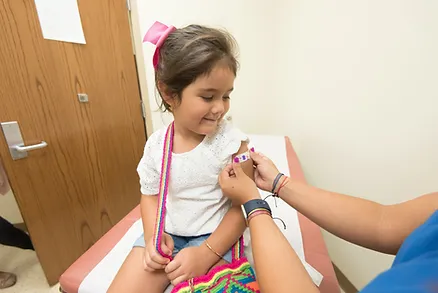The COVID-19 pandemic has brought the importance of vaccination to the forefront of public health discussions. Vaccination is one of the most effective tools to fight against pandemics and has saved millions of lives over the years. In this blog, we will discuss the importance of vaccination, the history of vaccination, the different types of vaccines, and how they work. We will also discuss the current COVID-19 vaccines and their effectiveness in combating the pandemic.
The History of Vaccines: The history of vaccines dates back to the 1700s when Edward Jenner discovered that inoculation with cowpox could protect against smallpox. Since then, the development and use of vaccines have become an important public health tool. The eradication of smallpox, one of the deadliest diseases in history, is a testament to the power of vaccination. Vaccines have also been developed to protect against other deadly diseases like polio, measles, and tetanus.
Types of Vaccines: There are different types of vaccines, including live attenuated vaccines, inactivated vaccines, subunit vaccines, and mRNA vaccines. Live attenuated vaccines contain weakened viruses or bacteria that stimulate the immune system without causing disease. Inactivated vaccines contain killed viruses or bacteria that are unable to cause disease. Subunit vaccines contain only the antigens that stimulate an immune response. mRNA vaccines contain a small piece of genetic material that instructs cells to produce a protein that triggers an immune response.
Vaccination and Herd Immunity: Vaccination not only protects individuals who receive the vaccine but also provides herd immunity, which means that a population is protected when a significant proportion of individuals are vaccinated. This is important for individuals who cannot receive vaccines due to medical reasons. Herd immunity also helps to prevent outbreaks and pandemics by reducing the number of individuals who can spread the disease.
COVID-19 Vaccines: The COVID-19 pandemic has highlighted the importance of vaccines in combating pandemics. Several COVID-19 vaccines have been developed and authorized for emergency use by regulatory agencies around the world. The vaccines have been shown to be safe and effective in preventing COVID-19 and reducing the severity of the disease.
The Pfizer-BioNTech and Moderna vaccines are mRNA vaccines that have shown over 90% efficacy in clinical trials. The Johnson & Johnson and AstraZeneca vaccines are viral vector vaccines that have shown over 70% efficacy in clinical trials. The vaccines require two doses, except for the Johnson & Johnson vaccine, which requires only one dose.
Conclusion: Vaccination is an effective tool to fight against pandemics and has saved millions of lives over the years. The history of vaccines shows that they are an important public health tool that has helped to eradicate deadly diseases. The different types of vaccines offer protection against a wide range of diseases, and vaccination provides herd immunity, which is important for individuals who cannot receive vaccines due to medical reasons. The COVID-19 vaccines have been developed and authorized for emergency use, and they have been shown to be safe and effective in preventing COVID-19 and reducing the severity of the disease. It is important that individuals receive the COVID-19 vaccine to protect themselves and their communities.

